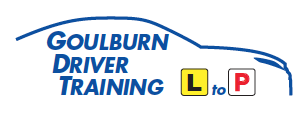In New South Wales (NSW), Australia, the licensing system for older drivers is designed to balance road safety with the mobility and independence of senior citizens. As drivers age, certain requirements are implemented to ensure they maintain the necessary physical and cognitive abilities to drive safely. This article provides a comprehensive overview of the aged driving test in NSW, detailing the procedures, options available to senior drivers, and the importance of these assessments.
Medical Assessments Starting at Age 75
At the age of 75, NSW drivers are required to undergo annual medical assessments to retain their driver’s licence. Transport for NSW (TFNSW) typically sends a notification letter approximately eight weeks before the driver’s birthday, reminding them to schedule this examination. The medical assessment must be completed before the driver’s birthday to ensure the licence remains valid. During this assessment, a general practitioner evaluates the individual’s overall health, focusing on aspects that could affect driving abilities, such as vision, hearing, motor skills, and cognitive function. If the doctor has concerns about the driver’s ability to operate a vehicle safely, they may refer the individual for a more detailed assessment or recommend certain driving restrictions.
Age Driving Test Assessments at Age 85
Upon reaching 85, drivers face additional requirements to maintain an unrestricted licence. In addition to the annual medical assessment, they must pass a practical aged driving test every two years. This on-road assessment evaluates the driver’s capability to handle real-world driving situations and adhere to current road rules. Drivers have two options for completing this assessment:
-
Service NSW Assessment: Drivers can opt for a aged driving test conducted by a Service NSW testing officer. This test is free of charge and can be booked by calling 13 22 13 or visiting a Service NSW service centre. However, there is a limit of three attempts if a driver needs to retake the test.
-
Older Driver Assessor: Alternatively, drivers can choose to be assessed by a TfNSW-accredited Older Driver Assessor. These assessors are professional driving instructors authorized to conduct driving assessments for senior drivers. Assessments are typically conducted starting from the driver’s home and on familiar local roads. There is no limit on the number of assessments a driver can take within the required period, but each assessment incurs a fee, which varies by assessor. Drivers can also book refresher driving lessons with these assessors to prepare for the test.
Modified Licences as an Alternative
For drivers who may not feel confident in passing the practical aged driving test or prefer to avoid it, NSW offers the option of a modified licence. A modified licence imposes certain restrictions, such as limiting driving to a specific radius from the driver’s home or restricting driving during nighttime. Opting for a modified licence allows drivers to forgo the practical driving test, provided they adhere to the agreed-upon conditions. This option enables senior drivers to maintain their independence while ensuring safety on the roads.
Preparing for the Assessment
To increase the likelihood of passing the practical driving test, senior drivers are encouraged to take refresher driving lessons. These lessons can help update drivers on current road rules, provide feedback on driving habits, and improve overall confidence. Organizations like the NRMA offer senior driver training programs tailored to the needs of older drivers, focusing on safe driving practices and preparation for the driving assessment.
Consequences of Failing the Test
If a driver fails the practical driving test due to a serious error—defined as driving behavior that poses a clear danger to themselves or others—their licence will be cancelled immediately. In such cases, it’s advisable to consider alternative transportation options or discuss the possibility of obtaining a modified licence with specific conditions that allow for limited driving privileges.
Conclusion
The aged driving test in NSW is a crucial component of the state’s commitment to road safety. By implementing regular medical and practical assessments for senior drivers, NSW aims to ensure that all drivers possess the necessary skills and health to operate vehicles safely. While these requirements may seem stringent, they are designed to protect not only the drivers themselves but also other road users. Senior drivers are encouraged to take advantage of available resources, such as refresher courses and professional assessments, to maintain their driving independence while adhering to safety standards.
Book your driving lesson today.

